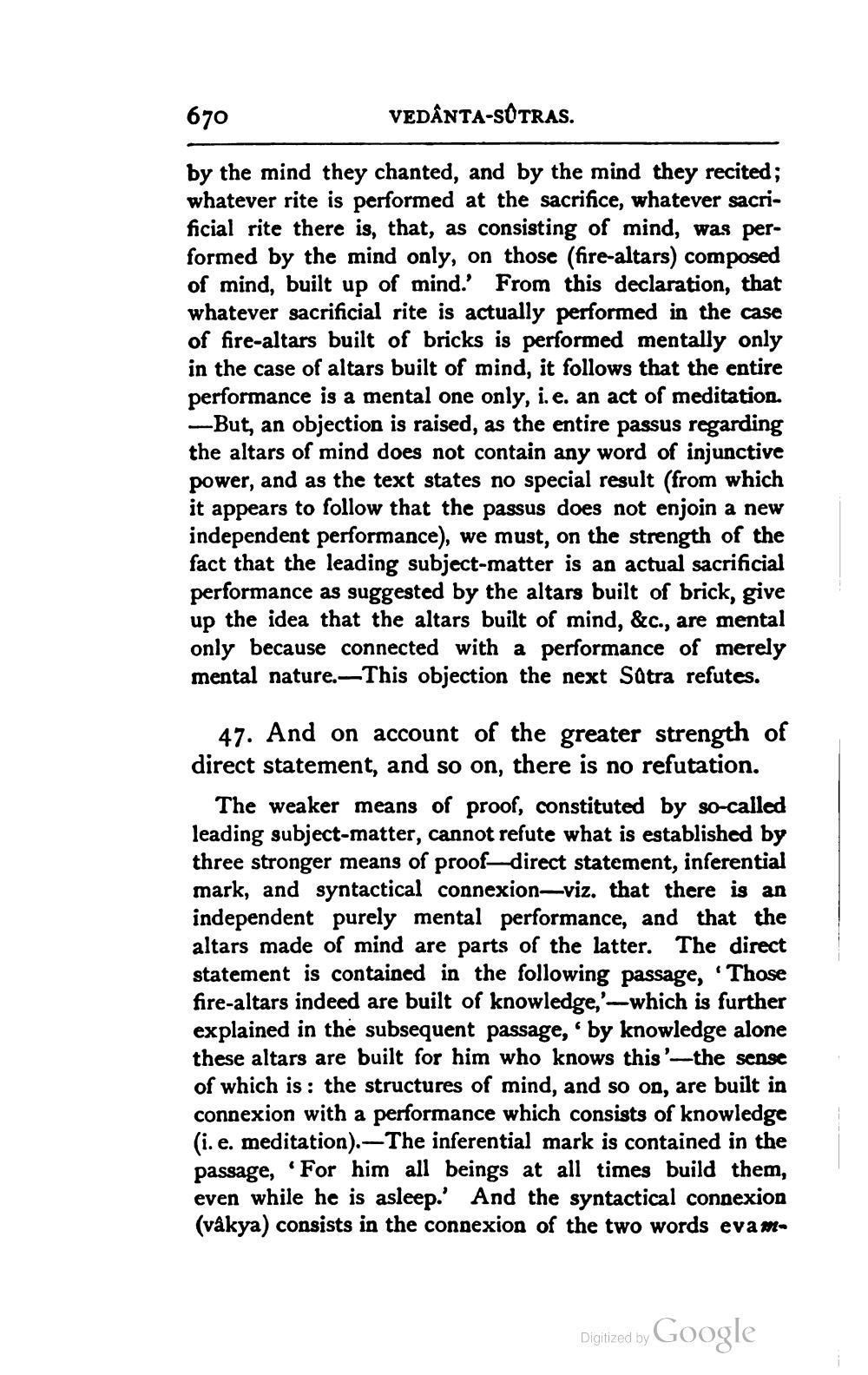________________
670
VEDÂNTA-SOTRAS.
by the mind they chanted, and by the mind they recited; whatever rite is performed at the sacrifice, whatever sacrificial rite there is, that, as consisting of mind, was performed by the mind only, on those (fire-altars) composed of mind, built up of mind.' From this declaration, that whatever sacrificial rite is actually performed in the case of fire-altars built of bricks is performed mentally only in the case of altars built of mind, it follows that the entire performance is a mental one only, i.e. an act of meditation. --But, an objection is raised, as the entire passus regarding the altars of mind does not contain any word of injunctive power, and as the text states no special result (from which it appears to follow that the passus does not enjoin a new independent performance), we must, on the strength of the fact that the leading subject-matter is an actual sacrificial performance as suggested by the altars built of brick, give up the idea that the altars built of mind, &c., are mental only because connected with a performance of merely mental nature.—This objection the next Satra refutes.
47. And on account of the greater strength of direct statement, and so on, there is no refutation.
The weaker means of proof, constituted by so-called leading subject-matter, cannot refute what is established by three stronger means of proof-direct statement, inferential mark, and syntactical connexion-viz. that there is an independent purely mental performance, and that the altars made of mind are parts of the latter. The direct statement is contained in the following passage, 'Those fire-altars indeed are built of knowledge,' --which is further explained in the subsequent passage, by knowledge alone these altars are built for him who knows this'--the sense of which is : the structures of mind, and so on, are built in connexion with a performance which consists of knowledge (i.e. meditation).—The inferential mark is contained in the passage, 'For him all beings at all times build them, even while he is asleep.' And the syntactical connexion (vákya) consists in the connexion of the two words evam
Digitized by
Digitized by Google




